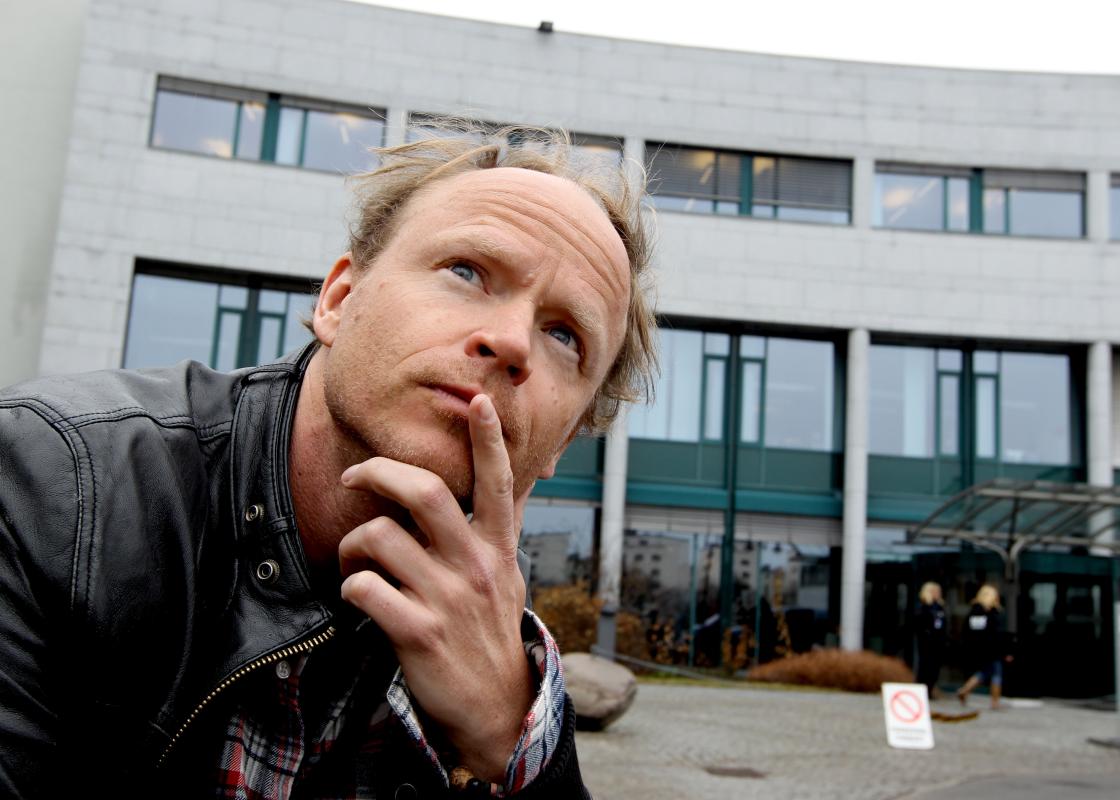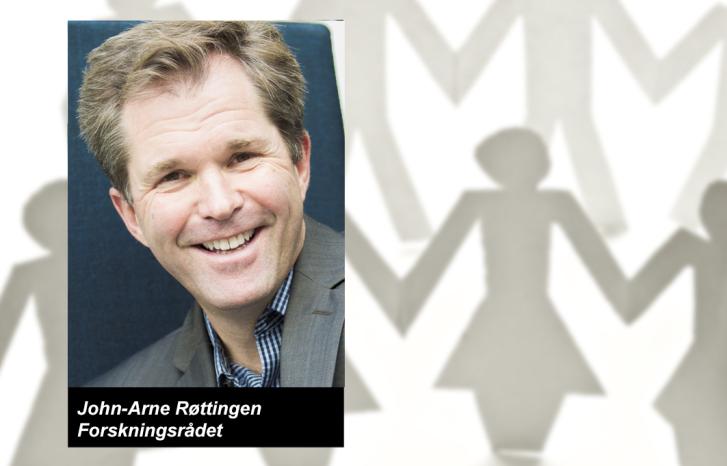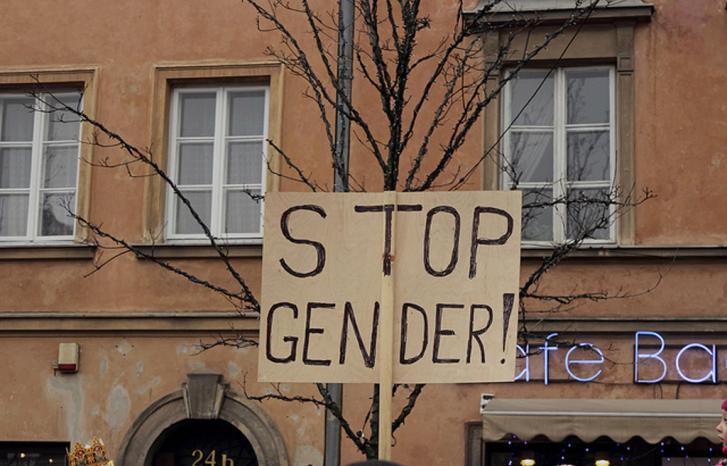In July 2014, the website elsalvador.com launched the news that Norway will ‘Close down information centre for gender research due to ‘Hjernevask’ ('Brainwash'). Earlier the same year, you could read about ‘How Harald Eia shook up the gender ideology’ in Brazil’s edition of A voice for men. If you google ‘Harald Eia NIKK’, you will soon find similar stories presented in Polish, Czech, Italian and English.
There is a widespread perception that the TV programme Hjernevask, which was shown on NRK in 2010, resulted in Norwegian gender research being closed down or that it lost all state funding. In addition, the debate in the wake of the programme is said to have led to the closing down of the Nordic institution NIKK, which disseminates knowledge on gender and equality. NIKK is currently run by the Swedish Secretariat for Gender Research. Maria Grönroos is Assistant Director of the secretariat.
“We have been contacted by researchers and journalists from various countries. They tell us that there are rumours in their countries about how the Nordic equality work has failed. The proof is that the Research Council of Norway or the Nordic Council of Ministers has closed down NIKK or the funding programme for gender research in Norway, and Hjernevask is supposed to have been the catalyst for this,” she says.
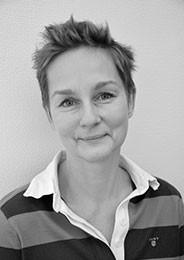
Logical explanation
“They contact us and ask us to confirm of refute the story,” says Grönroos.
She explains that it was not an issue at all to close down NIKK after Hjernevask was shown on Norwegian TV screens. NIKK did, however, move from Norway to Sweden and changed name and organisational structure, but this has a much less dramatic explanation.
“NIKK was a Nordic institute. After almost 15 years in Norway, the Nordic Council of Ministers wanted to turn NIKK into a Nordic cooperative body. Some of the resources were allocated for an equality fund, and NIKK was put out to tender. The Swedish Secretariat for Gender Research won the bid, and NIKK moved to Gothenburg in 2012. At the same time, it changed its name from Nordic Institute for Women's Studies and Gender Research to Nordic Information on Gender, but kept the old acronym.”
Incorrect information on Wikipedia and Twitter
Claims that Norwegian authorities have closed down gender research or that the Nordic Council of Ministers has closed down NIKK can be found on blogs and websites in a number of different languages. In Sweden, similar claims were published in connection to the Canadian psychologist Jordan Peterson’s visit to the TV host Fredrik Skavlan, in whose talk show equality was one of the topics under discussion.
Lukas Berggren, editor-in-chief for the Swedish Christian newspaper Världen i dag, wrote in his editorial on 1 November 2018 that due to Hjernevask, gender research had lost all public funding, as ‘the gender bullshit was revealed as the pseudo-science that it is’.
The Swedish website Samhällsnytt, which replaced the right-wing Avpixlad, repeats the same news in an article from 18 October 2018 about the closing down of gender studies in Hungary. They describe how gender research in Norway was investigated by the TV series Hjernevask, which demonstrated how biology explains gender differences better than social constructivism.
Despite the fact that you can find several claims like these online, Grönroos finds it difficult to estimate the scope of these perceptions.
“We receive a few questions each year to NIKK and NIKK’s email. I see various claims in the social media that no one neither falsifies nor verifies.”
Gender research is an established research field in Norway with its own research centres at the major universities.
There has also been incorrect information on Wikipedia sites about NIKK. Grönroos and her colleagues correct them when they are made aware of the misinformation.
“But it would be an impossible task to correct this everywhere,” says Grönroos.
“I also think there is an ideology behind promoting these views, even though they are fake news. It is difficult to do anything apart from continuing to do what we do well and let the work speak for itself. I believe that people are able to judge themselves what is right and what is not. Although I am not always convinced.”
“Who presents the claims about NIKK and Norwegian gender research?”
“It is not easy to tell. There are often individual people on Twitter. But I also get the impression that there are political powers that aim to influence which research receives funding or how the equality policies should be understood,” says Grönroos.
In Sweden, the political party Sverigedemokraterna (‘The Sweden Democrats’) wishes to cut state funding for gender research. When the party tweeted their proposal to cut the funding for the Swedish Secretariat for Gender Research on 8 April this year, one Twitter user commented: ‘Watch ‘hjernevask’ on Youtube and you will understand why Norway closed down the mess.’
“But the last enquiry we received came from Brazil,” says Grönroos.
“That is probably no coincidence, considering who is governing there now.”
Brazil is one of several countries in which politicians, media and other populist right wing and conservative voices call for resistance against a so-called ‘gender ideology’. In countries such as Brazil, Hungary and Poland, the term gender is used as a symbol of everything that threatens conservative family values.
For the benefit of dark forces
Harald Eia was the programme host of Hjernevask. He is praised as a hero on blogs such as A voice for men and The Male Factor. On the American National Coalition for Men’s webpage, he is mentioned in the following terms: ‘Harald Eia, Man of the Decade. He exposed gender feminism for what it really is, comic relief with serious consequences. Watch his videos to see what brainwashed gender pseudo scientists and researchers really look like.’
“How does it feel to be anti-feminists’ and the extreme right’s hero?”
“It doesn’t feel very good,” says Eia.
Eia explains that he is aware that Hjernevask is praised in these circles. He has seen claims on Twitter that he has contributed to everything from shutting down the Department of Equality to having cheated Norwegian gender research for large sums of money.
Does this mean that I cannot speak up about the things that interest me, because it may be used for the benefit of dark powers?
“Unfortunately, some conservative circles have embraced Hjernevask,” he says.
“I don’t always get it. Take anti-abortion people for example. I don’t understand how they can use arguments from Hjernevask. And they only like parts of the project, but not, for instance, the programme about homosexuality. They try to oppose all equality measures by claiming that everything is governed by nature.”
Eia himself has only been contacted a few times.
“I have been contacted at least three times, by Italian, German and Swedish media.”
See also: European gender scholars unite in resistance against right-wing attacks
Misinformation about funding of gender research
One repeated claim to criticise the existence of gender research in Sweden or other countries is that the Research Council of Norway closed down its gender research funding programme due to Hjernevask, or that gender research has ceased to exist in Norway altogether.
The Research Council of Norway had until 2012 three long-term funding programmes for gender research.
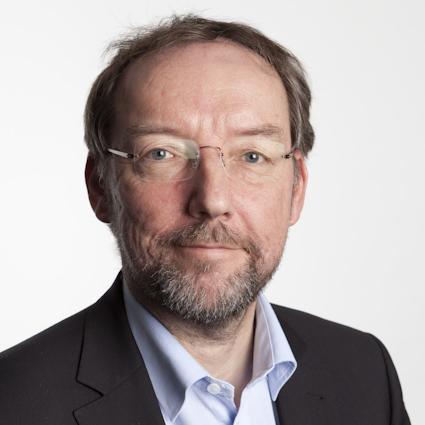
The overall goal was to strengthen gender research as an individual academic field and to promote new knowledge on gender and equality. The decision not to continue to have a separate funding programme for gender research after 2012 was made before Hjernevask appeared on Norwegian TV screens, according to Director for Research on Society and Health in the Research Council of Norway Jesper Simonsen.
“Hjernevask has had no effect on how we regard gender research in the Research Council,” says Simonsen.
Nor is it correct that Norwegian authorities have withdrawn funding for gender research. In line with everybody else in academia, gender researchers apply for grants from the funding programmes available.
“The Research Council has no statistics for the funding of gender research, since we do not mark the topic gender research,” says Simonsen.
In the Research Council, the term ‘gender perspectives in research’ is used instead, which is much broader than the field gender research itself. The inclusion of gender perspectives in the grant applications gives extra points to the researchers who apply for funding.
“If the experts within the fields think it is relevant to have a gender dimension in the research projects, but it is not included in the project applications, this will affect the assessment of the project negatively,” says Jesper Simonsen.
“How does the Research Council relate to claims that gender research is a pseudo-scientific field?”
“Gender research is an established research field in Norway with its own research centres at the major universities. We cannot see that these claims have any truth value.”
Read John Arne Røttingen, Chief Executive Officer of the Research Council of Norway: The gender dimension should be broadly integrated in research.
Dilemma that anti-feminists use Hjernevask
In Harald Eia’s opinion, it is a dilemma that milieus with anti-feminist attitudes use his project in order to legitimise their opinions.
“Does this mean that I cannot speak up about the things that interest me, because it may be used for the benefit of dark powers? Is there a limit for what one might say?”
Eia refers to himself as a positivist, and wishes to see more research from disciplines such as behavioural genetics, and particularly research that uses quantitative methods, in analyses of differences.
“If Hjernevask has changed anything, it must be that the perspective I presented in the programme is taken into consideration more often now,” he says.
According to him, many people mistakenly believe that he thinks that what explains people’s behaviour is an argument for how things ought to be.
“They move from is to ought. Let us say that I think there are some average differences when it comes to men and women’s interests. If it was, the case that women are more interested in children than men are, this does not mean that I think all women should mind children, I rather think we ought to push men into a new role. For instance, I am more interested in my own children than my father was in his children; a change has taken place here.”
Did not create Hjernevask for Hungary
The voices that try to combat equality and gender research have become louder since 2010. Around new year, Eia and co-creator of Hjernevask Ola Martin Ihle decided to shut down a discussion forum on Facebook because there was ‘too much filth’.
“I wouldn’t say that the discussion hardened. But there was a lot of anger, and we often had to tell people to take it easy. There were not many like that, but three or four bullies are enough to make it uncomfortable for everybody,” says Eia.
“Today, there are strong anti-feminist movements in countries such as Hungary, Poland and Brazil. What do you think it would have been like to create Hjernevask in the situation that we have today?”
“I did not create Hjernevask for Hungary, I was thinking of Norway.”
In order for the employment market to be gender segregated, there simply have to be a lot of women who work.
“In Norway, being a feminist is common. The demands that are brought forth for equality are considered reasonable. There are few agitators among feminists, so instead the anti-feminists need to create an image of the enemy based on what goes on in other countries, such as the US,” he says.
When it comes to procedure, Eia would have done some things differently.
“When I spoke with gender researcher Jørgen Lorentzen, I felt an arrogance there that I wanted to display. But today I would have chosen a different method – I would not have blindsided people the way I did back then,” he says.
But he would not have restrained himself unless the TV series was created for a European audience.
“That would have been different. At the same time, I think the people we are talking about here have already made up their minds.”
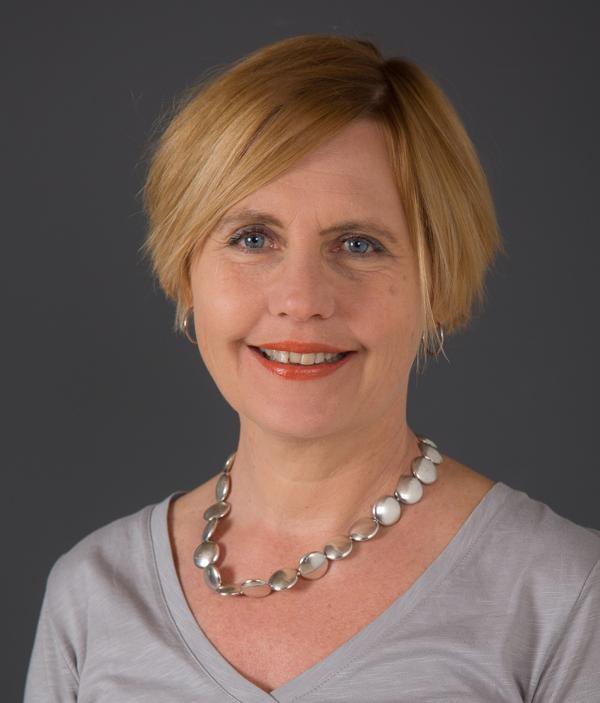
Equality paradox not so paradoxical
The episode of Hjernevask that received most attention is called Likestillingsparadokset (‘The gender equality paradox’). The paradox referred to is that despite the fact that Norway and the other Scandinavian countries are the most gender equal in the world, men and women make gender traditional choices when it comes to education and work. Many critics argue that gender research is unable to explain this particular pattern.
Mari Teigen is Director of CORE – Centre for Research on Gender Equality, and has explored this paradox for years. According to her, it was presented incorrectly in the programme.
“What we said in the debate following Hjernevask, which we have even better evidence for today, is that there have been some major changes when it comes to women’s choice of education and career, whereas men’s choices have changed to a lesser degree.”
The debate concerning what affects women’s and men’s choice of career has been revitalised following Jordan Peterson’s visit to Norway in the autumn of 2018. He argues that the more equal and free the society is, the more gender traditional are the women’s career choices. According to Teigen, this is incorrect.
“Researchers have not yet fully explored why men’s choices have not changed in line with women’s,” says Teigen.
The research we do have indicates that it is less rewarding for men to choose differently from the men before them. Teigen refers to international research and points to the American sociologist Paula England.
“England found that because women’s work is valued low, women have changed their choice of career over time. But it is not beneficial for men to do the same. The changes in women’s choice have a lot to do with structures and benefits.”
Both advocates for and against equality are preoccupied with the gender divided labour market.
“When we have looked closer into this issue, we see that the high degree of gender segregation is connected to high employment among women. In many countries in which employment among women is rising, the gender segregation on the employment market is also increasing. In order for the employment market to be gender segregated, there simply have to be a lot of women who work.”
According to Teigen, the degree of gender segregation is connected to the various countries’ cultural and historical context.
“But the general tendency is convergence: increasing equality, not inequality, between the genders,” says Teigen.
Gender research has better answers concerning structure today
“Is it the case that Norwegian gender researchers do not believe in biological explanations?”
“Biology has been used to hold women down, to explain what is, not what may be changed. Gender researchers have good reasons to struggle with biological explanations,” says Teigen.
“I wish that biologists would participate more actively in the debates about how we may understand and explain gender differences – both changes and stability. There are many indications that the interplay between the biological and the social is much more complicated than the simplistic perceptions of biology that are often brought forth in the debates on nature versus nurture.”
Teigen asks how those who refer to biology as an explanation to stagnation may explain change.
We are known to be the leading countries when it comes to gender equality, thus those who oppose equality will point to every weakness they can find.
“Women have changed a lot! So they have to decide what they want to explain through biology.”
“Which research do you think best explains the equality paradox?”
“Parts of gender research have been more preoccupied with exploring what gender is, than to understand the development of gender equality. In my opinion, many gender researchers have not been sufficiently interested in structural, institutional, political factors that may help us understand why the gender structures look the way they do,” says Teigen.
“What I wanted with CORE was precisely to contribute to the understanding of the development of gender equality and gender differences in Norwegian society. I wanted to do this with methodological breadth – qualitative and quantitative research, with better knowledge on structural factors.”
Pity that Nordic struggle for equality is misused
Mari Teigen finds it uncomfortable to see Norwegian equality issues discussed in right-wing populist debates.
“We have been satisfied with a lot in the Nordic countries, and received much attention for the Nordic model and our equality victories. But because liberal forces have used us as an example to be followed, we have also been used by their opposers. We are known to be the leading countries when it comes to gender equality, thus those who oppose equality will point to every weakness they can find.”
Maria Grönroos at NIKK and the Swedish Secretariat for Gender Research finds it discouraging to hear from advocates for equality from other countries that the Nordic countries are referred to as a failed equality project.
“Many countries have a major job to do, and they also have a huge commitment. And then they hear these claims that it is useless to work for equality. The people who say that are trying to degrade all the important work that should be done.”
Translated by Cathinka Dahl Hambro.
Hjernevask (‘Brainwash’) was a popular science TV series shown on NRK (Norwegian national broadcasting) in spring 2010. Harald Eia (born 1966), comedian, actor and sociologist, hosted the show.
Through a series of seven episodes, Eia explored why people become what they become, and asked whether it could be explained by nature or nurture. The series was based on interviews with Norwegian and international researchers.
The programme led to numerous media debates about Norwegian gender research. In 2010, Eia received the foundation Fritt Ord’s honorary prize for Hjernevask.
Nordic Information on Gender. NIKK is a Nordic cooperative body under the Nordic Council of Ministers.
NIKK gathers and disseminates knowledge on politics and practice, facts and research on gender equality in a Nordic perspective. Source: nikk.no
